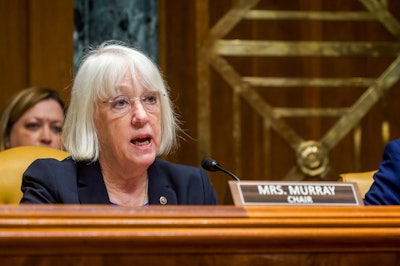 U.S. Senator Patty Murray
U.S. Senator Patty Murray
The move by Murray, Vice Chair of the Senate Appropriations Committee, forces Riley's nomination to undergo full committee review rather than skipping directly to Senate floor consideration. The action comes just weeks before the new school year begins, with school districts across the country scrambling to address massive budget shortfalls created by the Trump administration's funding freeze.
"As schools nationwide scramble to figure out how many teachers they need to lay off and afterschool programs warn parents to make back up plans—all because President Trump is blocking over $6 billion in education funding he himself signed into law—there is no reason for any Department of Education nominee to skip committee consideration and get fast-tracked for confirmation," Murray said in a statement.
The senator's parliamentary maneuver reflects growing Democratic frustration with the Trump administration's decision to withhold funding that was previously approved by Congress. The administration notified states on July 1—the traditional deadline for fund distribution—that it was placing the money under review "given the change in Administrations."
The funding freeze affects six critical federal education programs that support teacher professional development, English language learning, after-school programs, and services for migrant children. The largest portion consists of $2.2 billion for Supporting Effective Instruction State Grants, which fund professional development and activities to improve teacher effectiveness.
Twenty-four states and the District of Columbia have already filed a lawsuit against the Trump administration over the frozen funds, with California Attorney General Rob Bonta calling the move one with "no rhyme or reason" that came "abruptly" just weeks before the school year begins.
The consequences are being felt immediately across the education landscape. The Afterschool Alliance warned that without the funds, "we will quickly see more children and youth unsupervised and at risk, more academic failures, more hungry kids, more chronic absenteeism, higher dropout rates, more parents forced out of their jobs, and a less STEM-ready and successful workforce."

















